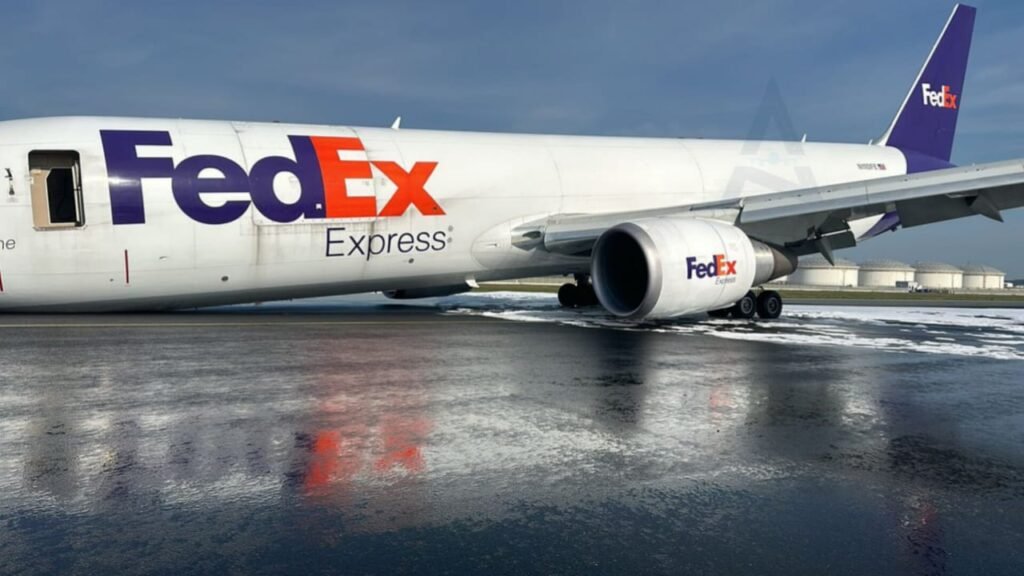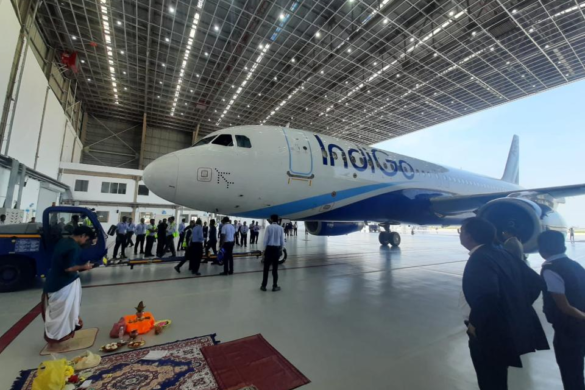FedEx, a global leader in logistics and delivery services, has announced the retirement of 22 Boeing 757-200 freighters from its fleet. This strategic move is part of the company’s ongoing efforts to modernize its aircraft fleet, enhance operational efficiency, and reduce its environmental footprint. The phase-out marks a significant step in FedEx’s broader strategy to adopt newer, more fuel-efficient aircraft while continuing to meet the growing demands of the global cargo market.
The Boeing 757-200 freighter has been a mainstay in the FedEx fleet for several years. Known for its versatility, range, and payload capacity, the 757-200 has played a crucial role in the company’s operations, particularly in serving medium to long-haul routes. With a maximum payload of 87,700 pounds and a range of approximately 3,665 miles, the aircraft has been ideal for connecting regional hubs and facilitating timely deliveries across various markets. However, as part of its commitment to continuous improvement and sustainability, FedEx has recognized the need to transition to newer, more advanced aircraft that offer better fuel efficiency and lower operational costs.
The retirement of the 22 Boeing 757-200 freighters is aligned with FedEx’s comprehensive fleet modernization plan. This plan involves the acquisition of next-generation aircraft, such as the Boeing 767 and Boeing 777 freighters, which offer significant improvements in fuel efficiency, cargo capacity, and environmental performance. The Boeing 767 freighter, for instance, provides nearly 30% more cargo capacity and up to 20% better fuel efficiency per payload ton than the 757-200. Similarly, the Boeing 777 freighter, with its extended range and larger cargo hold, enables FedEx to optimize long-haul operations and reduce the number of flights needed to transport the same volume of goods. By phasing out older aircraft and introducing newer models, FedEx aims to reduce fuel consumption and greenhouse gas emissions, contributing to the company’s sustainability goals. This transition is also expected to lower maintenance costs and improve the overall reliability of the fleet.
The shift towards a more modern fleet is not just about environmental benefits. It also enhances operational efficiency and supports FedEx’s ability to provide reliable, timely services to its customers. Newer aircraft come equipped with advanced avionics, navigation systems, and enhanced cargo handling capabilities, all of which contribute to smoother operations and improved delivery times. Moreover, the streamlined fleet structure will allow FedEx to better manage its maintenance schedules and reduce downtime, ensuring that more aircraft are available to meet the increasing demands of e-commerce and global trade.
FedEx has long been committed to reducing its environmental impact and promoting sustainable practices within the logistics industry. The retirement of the 757-200 freighters is part of the company’s broader sustainability strategy, which includes goals to achieve carbon-neutral operations by 2040 and to invest in renewable energy and alternative fuels. The company has also been exploring innovative technologies and practices, such as electric delivery vehicles and fuel-efficient routing algorithms, to further minimize its carbon footprint.
The phase-out of the Boeing 757-200 freighters marks a significant milestone in FedEx’s journey towards fleet modernization and sustainability. By investing in newer, more efficient aircraft, the company is poised to enhance its operational capabilities, reduce environmental impact, and continue to deliver exceptional service to its global customer base. As the logistics industry evolves, FedEx’s commitment to innovation and sustainability will ensure that it remains at the forefront of the market, setting new standards for efficiency and environmental responsibility.



